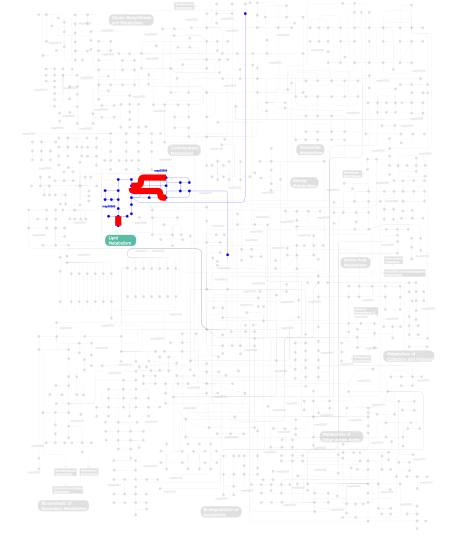The domain within your query sequence starts at position 26 and ends at position 116; the E-value for the PX domain shown below is 3.08e-8.
SNFLEIDVSNPQTVGVGRGRFTTYEIRVKVVVPPLPGKAFLRQLPFRGDDGIFDDNFIEE RKQGLEQFINKVAGHPLAQNERCLHMFLQDE
PXPhoX homologous domain, present in p47phox and p40phox. |
|---|
| SMART accession number: | SM00312 |
|---|---|
| Description: | Eukaryotic domain of unknown function present in phox proteins, PLD isoforms, a PI3K isoform. |
| Interpro abstract (IPR001683): | The PX (phox) domain [ (PUBMED:8931154) ] occurs in a variety of eukaryotic proteins and have been implicated in highly diverse functions such as cell signalling, vesicular trafficking, protein sorting and lipid modification [ (PUBMED:10782093) (PUBMED:11736640) (PUBMED:12461558) (PUBMED:16782399) ]. PX domains are important phosphoinositide-binding modules that have varying lipid-binding specificities [ (PUBMED:11884510) ]. The PX domain is approximately 120 residues long [ (PUBMED:11373621) ], and folds into a three-stranded beta-sheet followed by three -helices and a proline-rich region that immediately preceeds a membrane-interaction loop and spans approximately eight hydrophobic and polar residues. The PX domain of neutrophil cytosol factor 1 (p47phox) binds to the SH3 domain in the same protein [ (PUBMED:11373621) ]. Phosphorylation of p47(phox), a cytoplasmic activator of the microbicidal phagocyte oxidase (phox), elicits interaction of p47(phox) with phoinositides. The protein phosphorylation-driven conformational change of p47(phox) enables its PX domain to bind to phosphoinositides, the interaction of which plays a crucial role in recruitment of p47(phox) from the cytoplasm to membranes and subsequent activation of the phagocyte oxidase. The lipid-binding activity of this protein is normally suppressed by intramolecular interaction of the PX domain with the C-terminal Src homology 3 (SH3) domain [ (PUBMED:12356722) ]. The PX domain is conserved from yeast to human. A multiple alignment of representative PX domain sequences from eukaryotic proteins [ (PUBMED:9687503) ], shows relatively little sequence conservation, although their structure appears to be highly conserved. Although phosphatidylinositol-3-phosphate (PtdIns(3)P) is the primary target of PX domains, binding to phosphatidic acid, phosphatidylinositol-3,4-bisphosphate (PtdIns(3,4)P2), phosphatidylinositol-3,5-bisphosphate (PtdIns(3,5)P2), phosphatidylinositol-4,5-bisphosphate (PtdIns(4,5)P2), and phosphatidylinositol-3,4,5-trisphosphate (PtdIns(3,4,5)P3) has been reported as well. The PX-domain is also a protein-protein interaction domain [ (PUBMED:15263065) ]. |
| GO function: | phosphatidylinositol binding (GO:0035091) |
| Family alignment: |
There are 32485 PX domains in 32392 proteins in SMART's nrdb database.
Click on the following links for more information.
- Evolution (species in which this domain is found)
- Cellular role (predicted cellular role)
- Literature (relevant references for this domain)
- Metabolism (metabolic pathways involving proteins which contain this domain)
- Structure (3D structures containing this domain)
- Links (links to other resources describing this domain)



















































